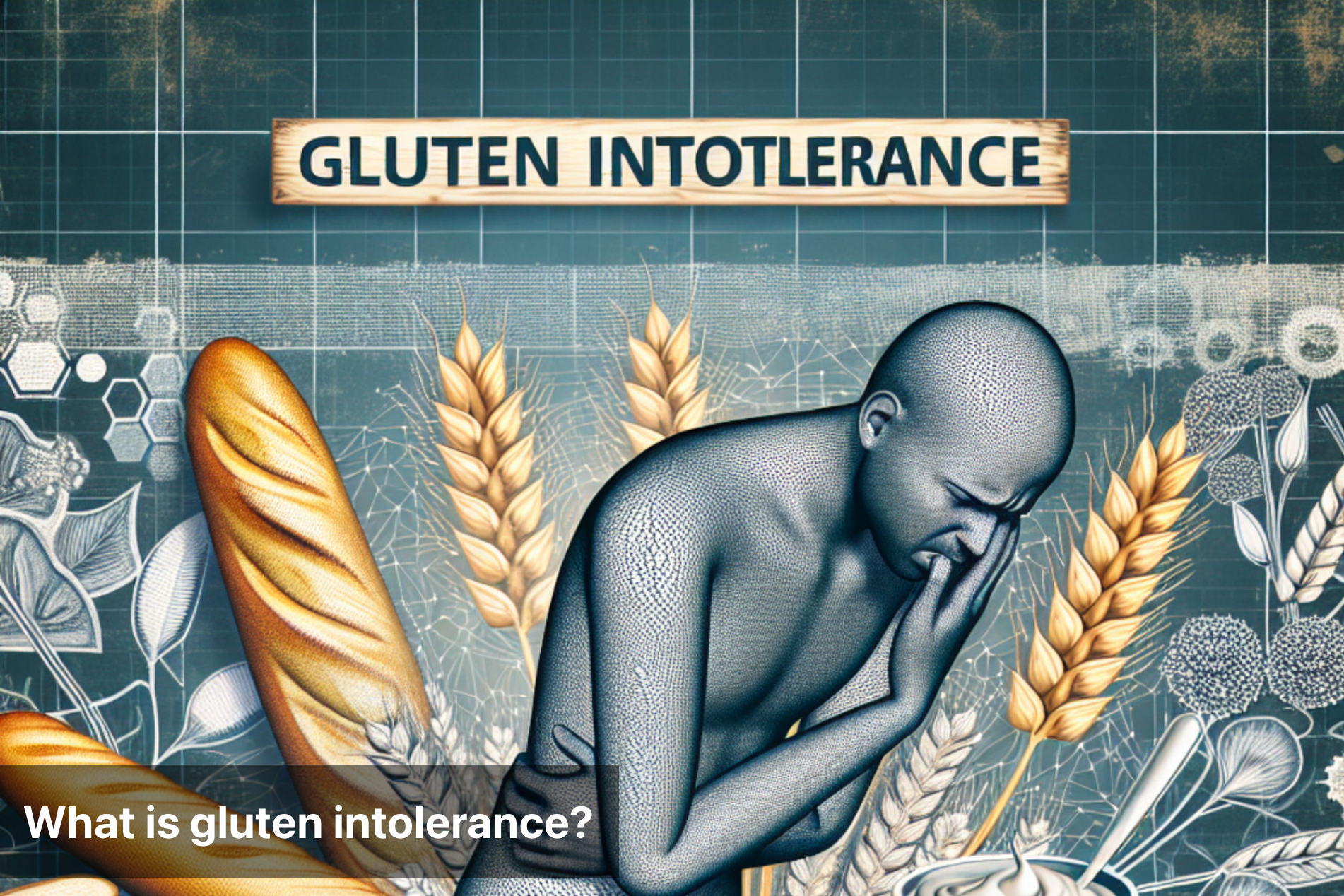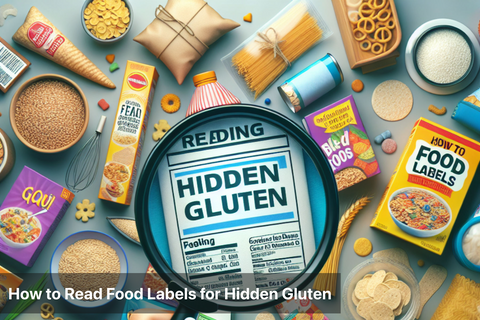
What is gluten intolerance?
Gluten intolerance, also known as gluten sensitivity, is a condition where the body has difficulty digesting gluten, a protein found in wheat, barley, and rye. This intolerance is not the same as celiac disease, as it does not cause the same type of intestinal damage.
Individuals with gluten intolerance may experience a range of symptoms, such as bloating, diarrhea, fatigue, and headaches, after consuming gluten-containing foods. These symptoms can vary in severity from person to person and can sometimes be mistaken for other conditions.
The prevalence of gluten intolerance is increasing, with more and more people being diagnosed with this condition. It is important to note that gluten intolerance is different from a wheat allergy or celiac disease, although the symptoms can sometimes overlap.
If you suspect you have gluten intolerance, consult with a healthcare provider who may recommend a gluten intolerance test. This test can help determine if gluten is causing your symptoms and guide you towards making dietary changes to manage your condition effectively. It is important to listen to your body and take steps to address any intolerance for improved overall health and well-being.

Causes and Triggers of Gluten Intolerance
-
Genetic Predisposition – Family history of gluten sensitivity or celiac disease.
-
Autoimmune Responses – Abnormal immune reaction to gluten.
-
Impaired Gut Health – Leaky gut syndrome increases gluten sensitivity.
-
Changes in Gut Microbiome – Imbalance in gut bacteria affecting gluten tolerance.
-
Stress and Lifestyle – Chronic stress weakens digestion and immune response.
-
Previous Digestive Infections – Infections trigger increased gluten sensitivity.
-
Overconsumption of Processed Foods – Refined gluten in processed foods worsens sensitivity.
-
Co-Existing Conditions – Conditions like IBS or autoimmune disorders heighten sensitivity.
-
Environmental Triggers – Allergens, chemicals, and infections can trigger sensitivity.
-
Age-Related Sensitivity – Sensitivity can develop with aging.
Diagnosis and Testing for Gluten Intolerance
|
Test/Diagnosis Method |
Description |
Purpose |
|---|---|---|
|
Medical History & Symptom Evaluation |
Review of personal/family history and gluten-related symptoms |
Initial assessment of potential gluten sensitivity |
|
Celiac Disease Blood Test |
Measures antibodies (tTG-IgA) associated with celiac disease |
Rules out celiac disease as the cause |
|
Gluten Elimination Diet |
Removal of gluten from the diet for 2-6 weeks |
Identifies improvement of symptoms when gluten is removed |
|
Gluten Challenge |
Reintroduction of gluten after elimination |
Confirms return of symptoms upon reintroduction |
|
Endoscopy & Biopsy |
Examination and biopsy of the small intestine |
Detects intestinal damage specific to celiac disease |
|
Genetic Testing |
Tests for HLA-DQ2 and HLA-DQ8 genes linked to celiac disease |
Rules out celiac disease (not diagnostic for gluten intolerance) |
|
Non-Celiac Gluten Sensitivity Diagnosis (NCGS) |
Diagnosis made after ruling out celiac disease and wheat allergy |
Confirms gluten sensitivity without celiac or wheat allergy |
|
IgG Food Sensitivity Test |
Measures IgG antibodies to gluten and other foods |
Controversial; some use it for identifying gluten sensitivity |
Management and Treatment of Gluten Intolerance
-
Gluten-Free Diet – Eliminate gluten-containing foods (wheat, barley, rye).
-
Read Labels Carefully – Check for hidden gluten in processed foods.
-
Use Gluten-Free Substitutes – Choose gluten-free flours and products.
-
Avoid Cross-Contamination – Separate cookware and utensils for gluten-free food.
-
Nutritional Balance – Include fiber-rich, gluten-free grains and foods.
-
Enzyme Supplements – For accidental gluten exposure (not a diet replacement).
-
Monitor Symptoms – Track reactions and adjust diet as needed.
-
Consult a Dietitian – Ensure balanced nutrition and avoid deficiencies.
-
Stress Management – Practice stress-reducing activities.
-
Regular Health Checkups – Monitor health and symptom changes.

How to Recognize Gluten Intolerance?
Gluten intolerance, also known as gluten sensitivity, is a condition where the body reacts adversely to gluten, a protein found in wheat, barley, and rye. This intolerance can manifest through various symptoms such as bloating, fatigue, and digestive issues, affecting a significant portion of the population worldwide.
One of the crucial aspects covered was the diagnostic process for gluten intolerance, emphasizing the importance of timely testing to confirm the condition. The gluten intolerance test plays a pivotal role in identifying individuals who may benefit from a gluten-free diet. Understanding the causes and triggers of gluten sensitivity, including genetic predisposition and autoimmune factors, is vital for comprehensive management.
Effective management of gluten intolerance involves dietary modifications, such as adopting a gluten-free diet, and incorporating lifestyle changes to alleviate symptoms and improve overall well-being. Additionally, medical treatments may be recommended based on the severity of the condition.
This Blog post is an initiative by Lo! Foods, to provide accurate and Nutritionist / Doctor approved information related to Health. Lo! Foods is India's leading brand for Everyday Functional Foods. Foods designed for specific Health conditions or Needs. Lo! Foods also runs India's largest range of Low Carb Healthy Cloud Kitchens, under the brand names of Lo!, ProteinChef, ATH (All Things Healthy) and DiabeSmart.















Leave a comment
Your email address will not be published.